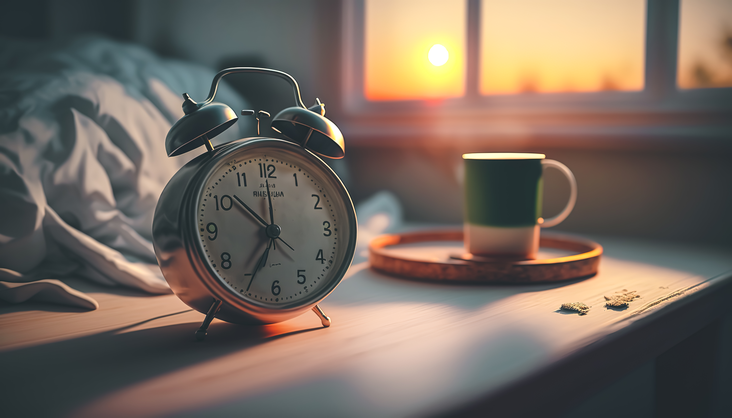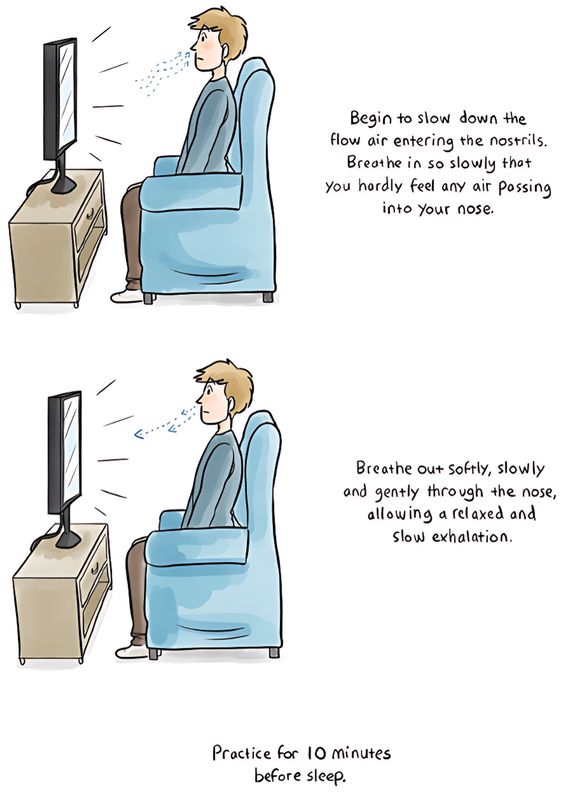Mastering Sleep Hygiene: Steps to a Good Night's Sleep
Dec 19, 2023 by Vreny Blanco · 8 min read · Wellness

Improving sleep quality can be achieved through behavioral and environmental changes, collectively known as sleep hygiene.
In this blog post, we look at strategies that can help you improve your sleep quality so that you wake up refreshed and energized.
How long should I sleep?
Adults should aim for 7 to 9 hours of sleep per night. However, some individuals may need as little as six hours, while others may require slightly more than nine.
Getting too little sleep creates sleep debt, meaning you must sleep more to catch up and feel rested. A regular sleep schedule minimizes sleep debt, helping you feel well-rested.
Why is sleep important?
A good night’s sleep is essential for success, as it significantly improves your physical and mental health, mood, and overall performance. Not getting enough sleep most nights can affect your short and long-term memory and ability to concentrate. It can also affect your decision-making and the speed and accuracy with which you can complete a task.
Poor sleep can also lead to anxiety, stress, impaired self-awareness, difficulty making decisions, and mood swings. A consistent sleep schedule can improve mood, cognitive function, and energy levels.
Limit Caffeine, Alcohol, and Nicotine
Caffeine, alcohol, and nicotine should be avoided in the evening, as they are associated with increased wakefulness and reduced sleep quality.
Avoid Caffeine After Noon
It takes about 10 hours for caffeine to be completely cleared from the bloodstream, increasing the risk of disrupting your sleep cycle.
Exercise Regularly
Incorporating regular exercise into your routine can be highly beneficial for enhancing sleep quality.
Exercise can reduce stress and improve sleep. Aim for 20 minutes of low-impact aerobic exercise, such as walking. Walking has been shown to enhance the quality of sleep, helping to regulate your sleep patterns and improve the quality of your rest, so you wake up feeling refreshed and revitalized.
Exercising too late in the day can have a negative effect on your sleep, so make sure you exercise at least four hours before bedtime.

Avoid Heavy Meals Before Bed
- Eating large meals before bed can cause indigestion, making it difficult to sleep.
- Eat your last meal 2 to 4 hours before bedtime to allow your body to digest the food and not disrupt your sleep.
- Avoid glucose spikes from sugary snacks or drinks to promote a restful and uninterrupted sleep.
Establish a Regular Sleep Schedule
Certain habits can help you establish and maintain a consistent sleep schedule:
Set a Regular Bedtime
A consistent bedtime helps train your body and brain. When your body and brain know that bedtime is coming, they can begin to prepare and wind down, which can make it easier to fall asleep.
Set a Regular Wake-Up Time
Setting your alarm for the same time every day, even on days when you don’t have to get up at a specific time, can help you maintain a consistent sleep routine.
Expose Yourself to Light Early in the Day
Exposure to bright light in the early hours of the day can help regulate your circadian rhythm. Take a walk after waking up or enjoy the sunlight through your window.
If You Change Your Sleep Schedule, Do It Gradually
Your body and brain can adapt to a new sleep schedule, but make the change gradually over time. Changing your bedtime and wake-up time in small increments will help your body adjust to a new sleep schedule when needed.

Relax Before Bed
Establishing a sleep routine is an important step in making sure you get a good night’s sleep. There are a number of ways to help your body and mind enter a state of relaxation and feel ready to fall asleep: Read a book, take a warm bath, listen to relaxing music, or practice breathing exercises.
Slow, deep breaths can help you focus and naturally calm your body. Here is my favorite exercise to do before bed:
Breathe Deep
Do this exercise before going to bed to help you relax. By practising this technique, you can calm your thoughts and prepare your body for a peaceful night’s sleep.
Exercise:
- Sit or lie down comfortably.
- Focus your attention on your breathing.
- Feel the slightly colder air entering your nose and the warm air leaving your nose.
- Begin to slow down the flow of air into your nostrils.
- Breathe in so slowly that you hardly feel any air entering your nose.
- Breathe out softly, slowly, and gently through your nose, allowing a relaxed and slow exhalation.
Practice this exercise for 10 minutes before bedtime.

Prepare Your Bedroom
Your environment significantly affects the quality of your sleep, so it’s important to create a space that is relaxing and conducive to rest. Several adjustments can help you create a relaxing sleep space:
Keep Your Bedroom Cool and Quiet
The ideal room temperature is 65-68 °F (18-20 °C).
Make Sure Your Bedroom Is Dark
A dark room promotes the production of melatonin and creates an optimal sleeping environment. Using light-blocking or blackout curtains can help. If you are on holiday and this is not possible, use a sleep mask.
Invest in a Good Quality Mattress and Pillow
A comfortable mattress and pillow are essential to improve the quality of your sleep. In winter, you can use thermal blankets to make sure you don’t wake up due to extremely low temperatures.
Limit the Use of Your Bedroom to Sleeping and Intimacy
Other activities such as reading, journaling, eating and watching TV should be done elsewhere in the house.
Listen to a Sleep Meditation or Relaxing Sounds
Keep the Lights Low
Your circadian rhythm, which helps you fall asleep at night and wakes you up in the morning, can be manipulated by the amount of light you are exposed to. Keeping the light level in your environment low up to two hours before bedtime tells your circadian clock that it is time to prepare for sleep. You can also program your lights to automatically change brightness at the same time each day. I use the Hue app from Philips to do this.
Turn Off Electronic Devices
Turn off or put away all electronic devices at least one hour before bedtime. The blue light from screens can interfere with the production of the sleep hormone (melatonin) and disrupt your sleep-wake cycle.
If you have trouble turning off your computer or are used to scrolling through social media until you fall asleep, consider using an app and website blocker like 1Focus. With 1Focus, you can create a schedule to block all apps and websites at night. This can help you establish a consistent schedule for going to bed and waking up, which can help regulate your body’s internal clock.

What to Do When You Cannot Sleep
Not being able to fall asleep when you want to can be frustrating, but there are steps you can take to alleviate this stress.
Do Not Force Yourself to Sleep
If you cannot fall asleep after 20 minutes, get up, go to another room and do something else. Doing a relaxing activity until you feel sleepy can help.
Avoid Checking the Time
Looking at the clock can make you anxious, and anxiety can make it harder to fall asleep. It may be helpful to make sure the face of the clock is out of sight so that you don’t focus on the time when you’re trying to fall asleep.
Talk to Your Doctor
If sleep problems persist, interfere with your daily activities, or cause other symptoms, talk to your doctor. If you are constantly waking up with headaches, backaches or neck pain, talk to your dentist to check for signs of bruxism (teeth grinding).
Conclusion
Sleep plays a crucial role in our overall health and well-being. It’s not only about the number of hours we sleep but also the quality of our sleep. By following the strategies outlined in this guide, you can significantly enhance the quality of your sleep.
It’s important to note that persistent sleep problems should not be taken lightly. If you’re experiencing sleep issues that interfere with your daily activities or cause other symptoms, it’s essential to consult a healthcare professional. Achieving better sleep may require some time and effort, but the benefits to your health and quality of life are undoubtedly worth it.




